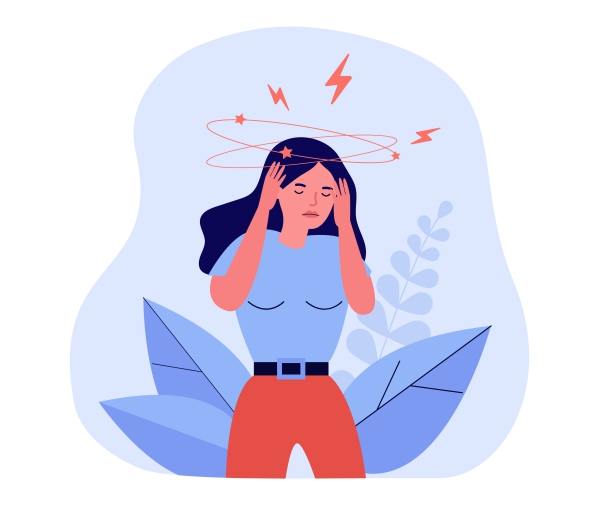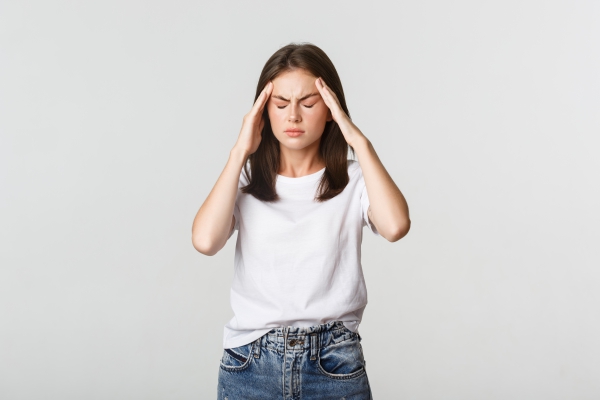What is dizziness?
Dizziness is a sensation of light-headedness or unsteadiness. It can sometimes make you feel like your surrounding is spinning around you and is called vertigo. Dizziness or vertigo can occur due to several conditions or diseases such as benign paroxysmal positional vertigo (BPPV), Meniere’s disease, vestibular neuritis and migraine amongst others.
As you age increases, your risk of having dizziness either due to medications or conditions increases. 40% of people suffering from dizziness are above the age of 40 years.
What are the causes of dizziness?
You may suffer from dizziness or vertigo if you have a problem with your inner ear, blood circulation or if you are taking certain medications.
Inner ear problems which results in vertigo include:
- Benign paroxysmal positional vertigo (BPPV): BPPV is a condition that causes vertigo upon certain head movements. It is the most common cause of vertigo.
- Vestibular neuritis: This condition occurs when you have a viral infection of the vestibular nerve which may result in an instant and constant vertigo.
- Meniere’s disease: This condition result in excessive accumulation of fluids within your inner ear and is characterized by sudden episodes of vertigo which may last for several hours. In addition, you may experience episodes of hearing loss, ringing in the ear and the feeling of a blocked ear.
- Migraine: People suffering from migraine may have episodes of vertigo which may last from minutes to hour. In addition, the episodes of vertigo may be associated with headaches, light and noise sensitivity.

Blood circulation problems which may result in dizziness include:
- Orthostatic hypotension: This condition occurs when your systolic blood pressure- the number on top of the blood pressure reading- drops dramatically resulting in a feeling of faintness or a brief moment of light-headedness. This most commonly occurs after sitting up or standing too quickly after having stayed in a sitting or lying position for an extended period of time.
- Poor blood circulation: Poor blood circulation to your brain or inner ear may result in dizziness. The poor blood circulation may occur due to conditions such as heart attacks, cardiomyopathy, irregular heart rhythms and strokes.
There are other conditions or causes of dizziness and these include:
- Medications: Certain medications can have dizziness as a side effect. Examples include tranquilizers, sedatives, antidepressants and anti-seizure drugs. In addition, medications which are taken to control or reduce your blood pressure may result in dizziness if they drop your blood pressure too much or too quickly.
- Anxiety disorders: Certain anxiety disorders such as panic attack and phobias can lead to dizziness.
- Anaemia: Anaemia occurs when your blood iron level is low which may result in dizziness. Other signs and symptoms which may accompany anaemia include pale skin, weakness and fatigue.
- Carbon monoxide poisoning: The signs and symptoms of carbon monoxide poisoning include dizziness, headache, weakness, vomiting, confusion and chest pain.
- Hypoglycaemia: A low blood sugar level may result in dizziness, anxiety and excessive sweating. This mainly occurs in diabetic people who use insulin.
- Dehydration
- Overheating

What are the symptoms associated with dizziness?
Dizziness may be described as a false sense of spinning while being still, feeing faint, light-headedness, loss of balance and a feeling of floating. The signs and symptoms associated with dizziness vary widely depending on the exact underlying cause. The following signs and symptoms may be associated with dizziness:
- Chest pain.
- Breathing difficulty.
- Severe headache with sudden onset.
- Loss of consciousness.
- Feeling numb or unable to move the upper and lower extremities.
- Seizures.
- Double vision.
- Fever.
- Irregular heartbeat.
- Confusion.
- Walking difficulty.
- Vomiting that will not stop.
- Slurred speech.
- Sudden hearing disturbances.
- Facial weakness or numbness.

Making a diagnosis
To make a diagnosis, your doctor will take a detailed history from you to know more about your symptoms. In addition, you doctor will you about any history of recent fall. After the history taking, your doctor will perform a thorough physical examination to look for signs that may be associated with dizziness. You doctor may order or perform some tests to confirm the diagnosis and these include:

- Eye movement testing: Your doctor will examine the movement of your eyes while tracking a moving object. In addition, air or water may be placed in your ear while observing your eye movement. These tests are done to assess whether there is any abnormality in your brain or brainstem which may be the cause of the dizziness.
- Dix-Hallpike manoeuvre: This test is perform in your doctor’s office to determine whether your dizziness is caused by the condition called BPPV.
- Rotary chair testing: This test is done to determine whether your vestibular system is working properly which is responsible to the maintenance of balance.
- Posturography: This is another test that can be used to assess your balance.
What are the treatments of dizziness?
The treatment of dizziness will depend on the exact underlying cause. People suffering from Meniere’s disease may be given water pills (diuretics) and advised to eat a low salt diet in order to relief the symptoms. In addition, people suffering from vertigo, dizziness and nausea, ma be given antihistamines and anticholinergics to provide immediate relief. In certain cases, benzodiazepines such as diazepam and alprazolam may be given to relief the dizziness. However, these medications are addictive and may cause drowsiness.
If you are suffering from BPPV, there is a simple manoeuvre which can be done in your doctor’s office to treat or even cure the disease and this is called the Epley manoeuvre or canalith repositioning. This manoeuvre is usually effective after one or two sessions. In addition, there are certain exercises which you can learn to help you make your balance system less sensitive to movements and this technique is called vestibular rehabilitation. It is often useful in people suffering from vestibular neuritis. People suffering from anxiety disorders may use psychotherapy to help them manage their anxiety and stress.

In certain conditions, an injection of the antibiotic gentamicin into your inner ear may be required to disable the balance function in that ear. Then, the other healthy ear will take over that function. In addition, surgical removal of the inner ear sense organ may be required and this surgical procedure is called labyrinthectomy. This is mainly used in cases where you have severe dizziness or hearing loss which are not responding to other treatments.

Source:
J. Alastair, I. and Simon, M., 2016. Davidson's Essentials of Medicine. 2nd ed. London: ELSEVIER.
Parveen, K. and Michael, C., 2017. Kumar & Clarks Clinical Medicine. 9th ed. The Netherlands: ELSEVIER.





